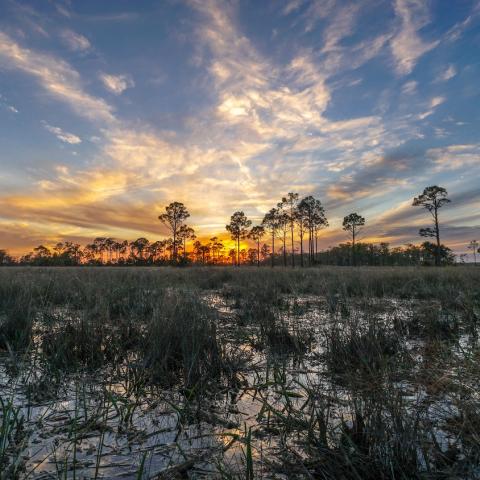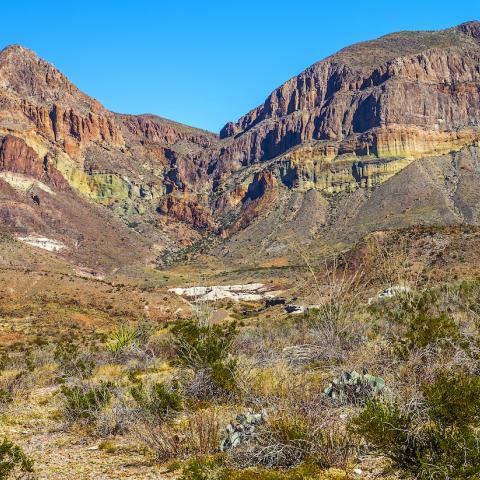
Aerial surveys recorded 16 bighorn sheep in Big Bend National Park/NPS.
The end of summer means the end of sheep monitoring season in Big Bend National Park. The National Park Service, in coordination with the Texas Parks and Wildlife Department, has concluded aerial surveying for native Bighorn Sheep and removal operations targeting non-native Aoudad (Barbary Sheep) in the park's Dead Horse Mountains and Boquillas Canyon areas.
On August 16, eighty-one Aoudad were successfully removed by trained marksmen aboard helicopters. Due to landscape ruggedness, distances, lack of road access, extreme temperatures, and concern for safety of removal staff, remains will be left on the landscape and returned to the park nutrient cycle by scavenging and carrion-feeding wildlife, as well as natural decomposition.
The aerial operation served two purposes. First, biologists aboard the helicopter were able to survey for native sheep. Sixteen bighorn were observed (rams, ewes, and lambs), which is the largest number ever recorded. Second, the removal of Aoudad reduced pressure on the park's small and threatened population of native Bighorn Sheep.
“I would like to thank the Texas Parks and Wildlife Department for all of their assistance in this operation,” said Big Bend National Park Superintendent Bob Krumenaker. “Having a great partnership with a state agency like Texas Parks and Wildlife certainly allows Big Bend National Park to further the mission of the National Park Service: preserving unimpaired the natural and cultural resources of the park for the enjoyment, education, and inspiration of this and future generations."
This effort is part of Big Bend’s long-term, integrated approach to control exotic animals and protect park resources. Management of aoudad is in keeping with the Big Bend Exotic Animal Management Plan and Environmental Assessment, finalized in June, 2018. To see this plan, visit https://www.nps.gov/bibe/getinvolved/planning.htm




 Support Essential Coverage of Essential Places
Support Essential Coverage of Essential Places







Comments
Instead of paying markmen to shoot all the Aoudad couldn't you have a lottery for hunters, make money, and have the Aoudad not go to waste?
JM--
Actually, no. I'm not involved in the specifics of this case (or any such cases for NPS), but it often (not always) can cost more to manage hunters, ensuring they don't damage other resources and kill the desired animals, than it does to pay trained shooters. And, note the line about the very rough terrain precluding them from even collecting the carcasses or even biopsies of them, which wildlife managers would normally collect (aging & scoring conditions of the Aoudad would let them know about population structure, genetics might show whether these are separate bands of animals, or a broader population wandering in and out of the park). That tells me that big game hunters aren't going to get in to the terrain where the Aoudad are in the park, not to find and shoot them, and certainly not to bring the meat & trophies out, without substantial damage to the vegetation & soils.
Interesting that the Park Superindendent so graciouly thanked the Texas Parks and Wildlife Department who were responsible for releasing Aoudad in Texas and letting them run wild over the state without any plan for effective control. This problem is not over and will not be until the aoudad is extirpated from bighorn sheep habitat throughout the southwest.